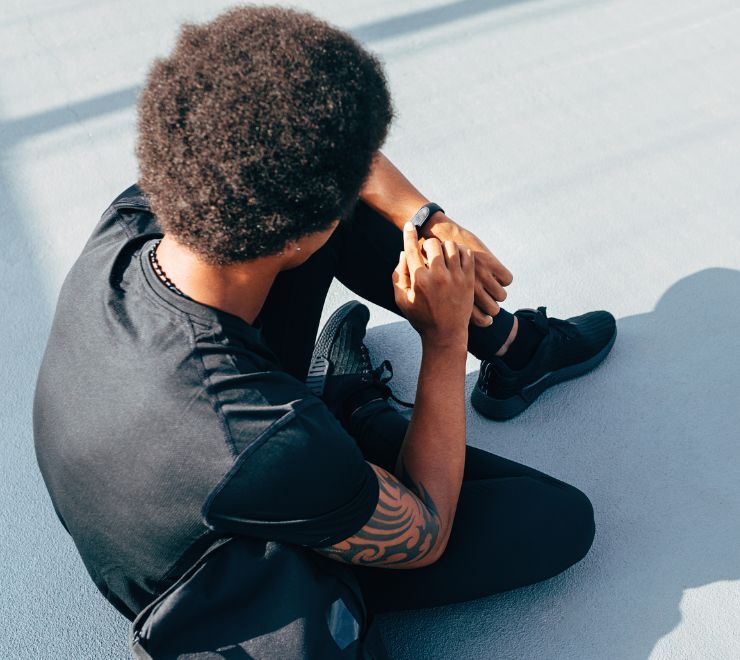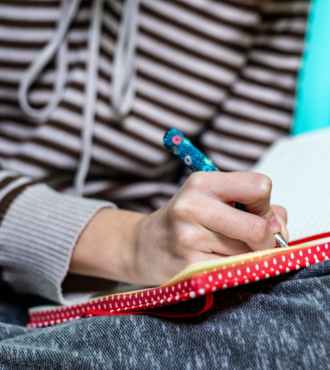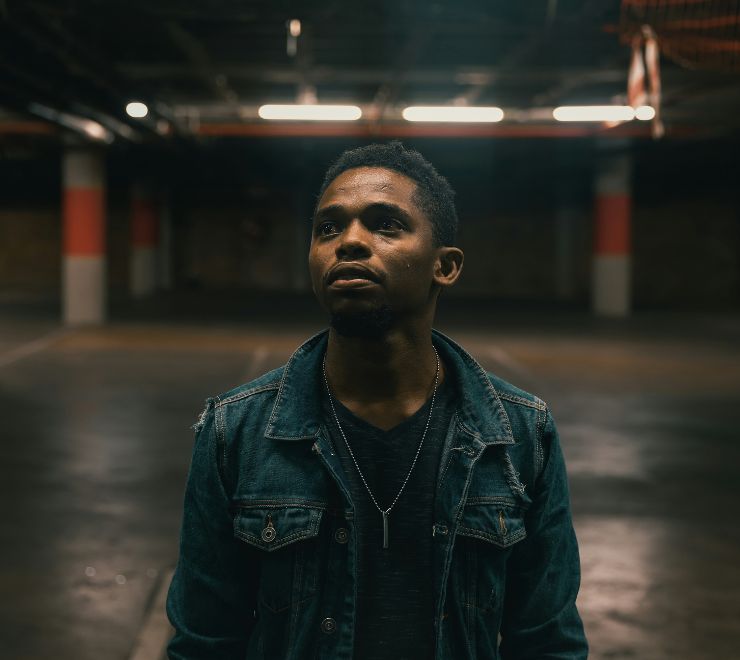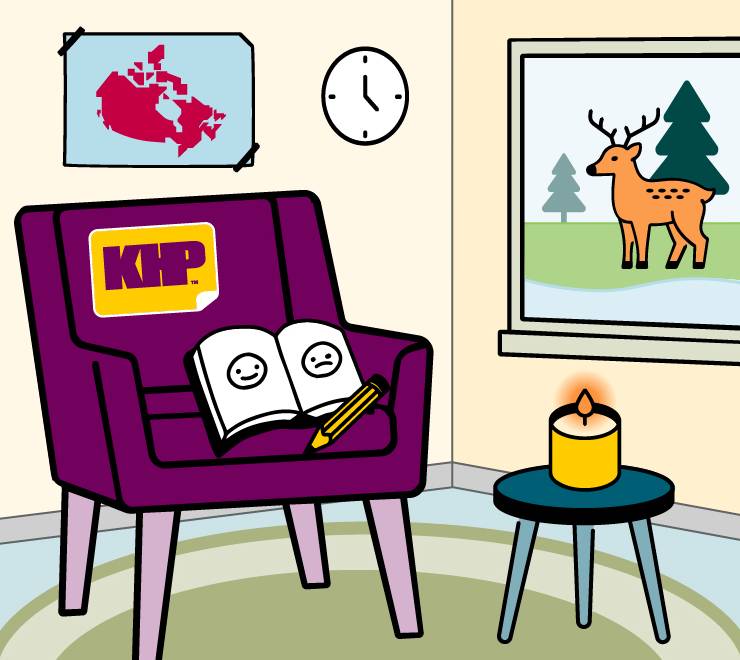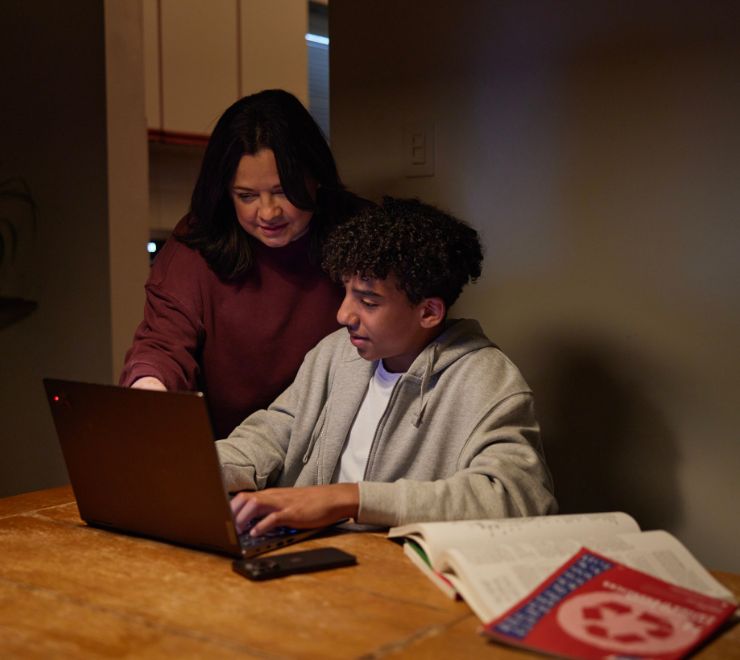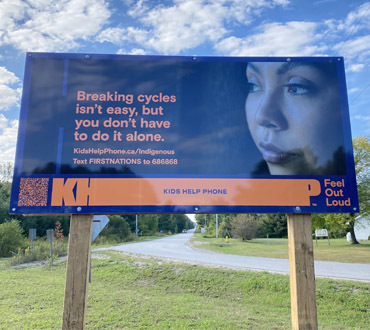Photography credit: Cesar Ghisilieri
Every day, young people across Canada reach out to Kids Help Phone for support about things affecting their well-being. Now more than ever, youth are reaching out to us about body image and eating disorders. If you’re struggling with an eating disorder or your body image, you’re not alone.
We collaborated with the National Eating Disorder Information Centre (NEDIC) for tips to support someone living with an eating disorder and/or struggling with their body image. It’s natural to feel like no one understands what you’re going through. Here, we’re sharing real quotes from NEDIC’s community to help you feel validated in your experience and learn how to be an advocate and ally.
What do you wish people knew about body image?
“Body image changes day by day regardless of your body type.”
“Just because someone tells you that your body looks good doesn’t make you believe it.”
People of any body type can be unhappy/uncomfortable in their skin.
“It can be neutral, not just positive or negative.”
“Even though you think someone looks pretty, that doesn’t mean that their body image is good.”
Eating disorders: Important things to know
Read information about eating disorders, including different types, health effects and more.
What kind of support (i.e. actions or words) would have been most helpful for you when living with an eating disorder or struggling with body image?
“Having more awareness around just how common eating disorders are would’ve helped me feel more comfortable in opening up about my struggles. Being informed earlier on in my recovery about eating disorder facts and statistics, and having access to stories from individuals who also similarly struggle, would’ve also helped alleviate the anxiety around feeling misunderstood. I hope the future holds normalizing eating disorders in society, and we can continue to shy away from the fear of speaking up about them.”
Something as simple as, ‘I can see that you’re struggling’ can help someone with an eating disorder feel less alone.
“Shutting down comments about my weight when others make them.”
“More awareness of binge eating being an actual disorder and not encouraging weight loss.”
Being told ‘you’re allowed to take up space’.
“Having social meals with my partner — a way to take the focus away from the food.”
“Focusing on strengths outside of my body/the physical.”
Reminders of 1) you’re not alone, 2) you are courageous in reaching out for the help you need.
“You are sick enough to get help, you are not the only one, and you can always reach out for help.”
“Listening to my experiences rather than always trying to just offer their advice.”

What is body image and why is it important?
Body image is how you feel about your body mentally, emotionally and physically.
What do you wish people knew about eating disorders, disordered eating and recovery?
Every person’s situation is unique.
“Recovery is tough, but worth it. Every time.”
“You don’t just grow out of an eating disorder and adults are in need of support too.”
Recovery takes time and sometimes new things can get worse before they get better.
“Eating disorders aren’t a weight disorder, it’s a mental disorder.”
“Losing weight to better your body image doesn’t help.”
That an ED (eating disorder) isn’t voluntary or self-inflicted. Recovery is a process and not an end point.
“It’s (recovery) hard, and can seem impossible, but is worth the effort.”
“What works for one person, doesn’t mean it’ll work for every other person.”
It’s possible to recover.
Learning about other people’s experiences can help you feel less alone and give you hope for whatever’s going on in your life. If you’re struggling with an issue — big or small — you can reach out to Kids Help Phone 24/7. We’re always here for you!
Where can I learn more?
Kids Help Phone would like to thank the National Eating Disorder Information Centre (NEDIC) and their community for their contributions to this article. You can learn more about NEDIC and browse their resources here.


